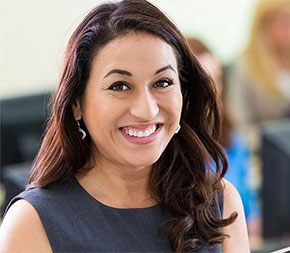What’s the Benefit of an English as a Second Language Degree?


Immigrants who move to the United States need a working understanding of the English language to help them operate effectively in American society. If you want to become an ESL teacher in the U.S., you’ll need a degree in English as a Second Language to master the intricacies of our language. Learn to teach English to non-native speakers and work effectively through language barriers with people from different cultures.
Colleges and universities offer a variety of ESL training programs to prepare prospective teachers for the unique challenges of teaching English as a second language. Read on for help navigating your different degree and certificate options and finding the right level of ESL training to meet your needs.
Bachelor’s Degrees in ESL Training
Since securing a position as an ESL teacher in a public school requires you to hold a state or national ESL certificate (see below), you will need to complete a bachelor’s degree and teacher certification requirements in order to begin your career.
If you are just starting your post-secondary education, you can jump right into the ESL education world by finding a college or university that offers specific undergraduate ESL training. While they can be hard to find, they offer the best way to break into the industry if you already know exactly what you want.
However, if you would like to spend your undergraduate years experiencing a more diverse, liberal arts education, you can choose between many common bachelor’s degrees. Each of the following bachelor’s degrees work well as a foundation for a TESL (Teaching English as a Second Language) career:
- literacy
- linguistics
- English
- bilingual education
- general education
Certification Programs
ESL teachers in the U.S. are required to have teacher certification in the state in which they teach. While state requirements differ, many states require at least a bachelor’s degree, student-teaching experience and successful completion of a teaching exam, such as the PRAXIS to become a teacher.
Since the No Child Left Behind Act requires teachers to prove they are “highly qualified” to teach their subjects, ESL teachers are usually required to receive what is known as an endorsement in TESOL (Teaching English to Speakers of Other Languages). Because of this, there are now hundreds of options for ESL certification.
Most ESL certification programs are taught by experts in the field and can often be completed within one year. Online ESL programs and evening and weekend classes are available for those who need a flexible schedule. Topics covered include linguistics, language acquisition, intercultural learning, and curriculum development and assessment.
Master’s Level
In the world of American ESL, college education most commonly leads to post-graduate work since most specific ESL training programs available today culminate in a master’s degree.
Often, teachers with an ESL endorsement meet some of the course requirements for this degree during their certification program. These master’s programs generally include unsupervised internships, so if you decide to go for your master’s, you might enjoy this opportunity to apply and practice what you learned in class.
Earning a master’s degree in ESL will prepare you to meet the demands of a growing immigrant population while increasing your earning and growth potential. Additionally, as a continuing education requirement in many states, earning your master’s degree is an inevitable enrichment for many teachers.
Doctoral Degrees and ESL Training
Doctoral degrees are generally for those who want to teach at the university level and do their own research, or work in administration. The two most common doctoral degrees in education (EdD) tracks involve either educational leadership at elementary or secondary schools or professor preparation.
If you are interested in moving up the ladder in your school or district, you should secure as much education and experience as you can. Earning an EdD in an area such as English education, multilingual studies, or teaching and learning will prepare you to teach or lead the ESL teachers of tomorrow. An EdD or a PhD is required if you want to become a university professor.



